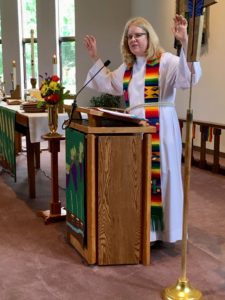 Roger, a longtime Good Shepherd member and Luther College faculty member, 1958-1989, died on December 26, 2017, in Janesville, WI. Visitation will begin at noon; a luncheon in the Fellowship Hall will follow the service. Burial will be in Phelps Cemetery. Memorials may be made to Luther College for the Dr. Roger W. and Amme E. Anderson Endowed Scholarship for teacher education and music students. A full obituary may be found here:
Roger, a longtime Good Shepherd member and Luther College faculty member, 1958-1989, died on December 26, 2017, in Janesville, WI. Visitation will begin at noon; a luncheon in the Fellowship Hall will follow the service. Burial will be in Phelps Cemetery. Memorials may be made to Luther College for the Dr. Roger W. and Amme E. Anderson Endowed Scholarship for teacher education and music students. A full obituary may be found here:
http://www.fjelstul.com/obituary/dr-roger-anderson





